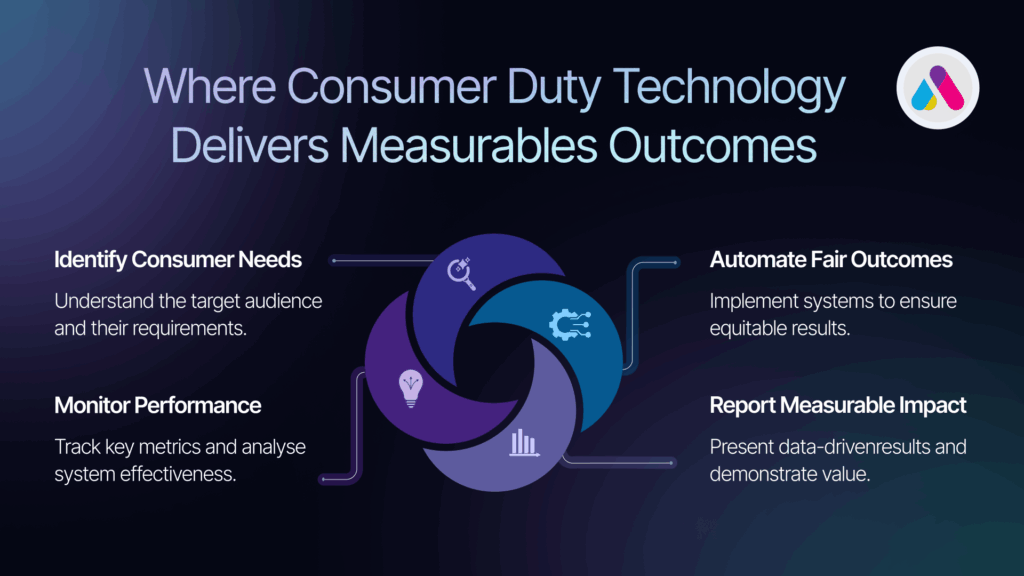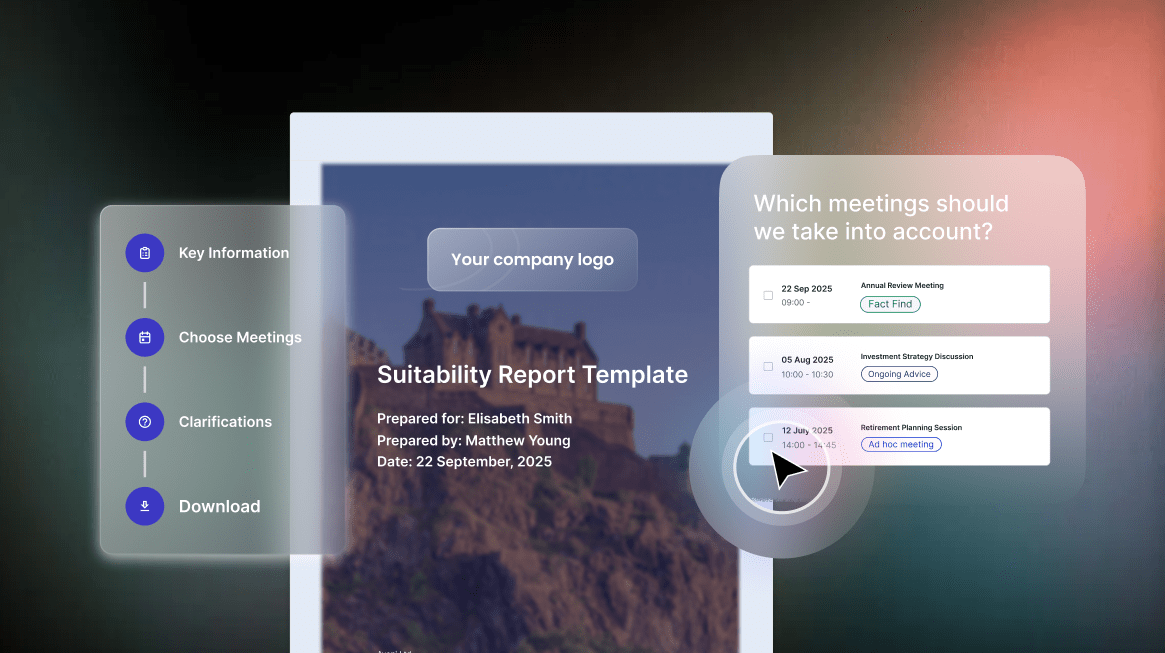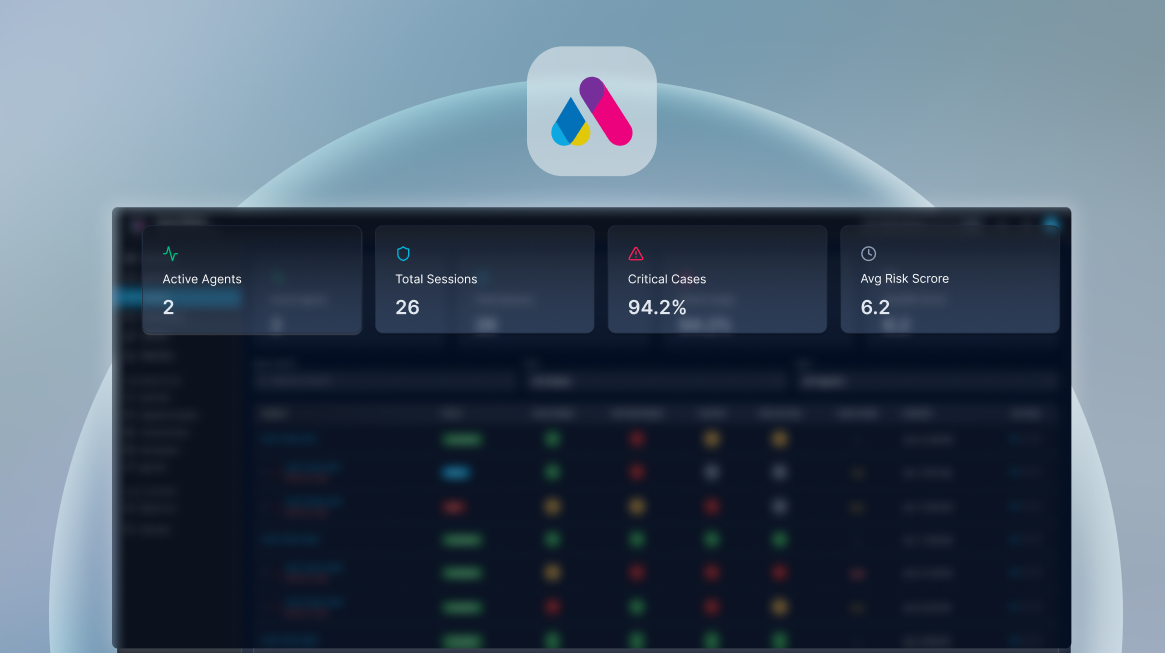UK financial institutions face strict new expectations under the Consumer Duty. Consumer duty AI tools help firms meet these standards by automating monitoring, improving governance and reducing compliance risk. This guide provides a complete roadmap for selecting, deploying and managing these solutions.
What Are Consumer Duty AI Tools
Consumer Duty AI tools are platforms designed specifically to help firms comply with the FCA’s Consumer Duty regime. These tools monitor, assess and improve compliance with regulatory obligations. They analyse all interactions rather than samples, to identify risks early.
They provide oversight across customer touchpoints. They detect vulnerability indicators, affordability problems, suitability issues and conduct risk. They shift compliance from reactive to proactive by covering every customer interaction.
See how technology supports Consumer Duty outcomes in practice → Consumer Duty Technology: The 2026 Outcomes Guide for Banks and Wealth Firms
Why Consumer Duty AI Tools Are Essential for FCA Compliance
Traditional compliance methods create fundamental gaps that Consumer Duty AI tools eliminate:
Manual Review Limitations
- Reviewing only 2-5% of interactions fails to reveal most risks
- Post-event audits catch issues too late for customer protection
- Static checklists cannot respond to context or complexity in individual customer interactions
- Monitoring in silos misses harm that accumulates across channels and over time
AI-Powered Compliance Advantages
- Monitor 100% of customer interactions across all channels (voice, chat, email, face-to-face meetings)
- Detect Consumer Duty risks in real-time so action can occur before customer harm
- Track complete customer journeys end-to-end to assess cumulative impact on outcomes
- Record detailed evidence for each Consumer Duty outcome for audit and regulatory review
Discover how Aveni Detect provides complete Consumer Duty monitoring coverage →
How Consumer Duty AI Tools Support Each FCA Outcome

Consumer Duty AI tools deliver outcome-specific monitoring capabilities that align directly with FCA expectations:
1. Products & Services Outcome
Automated Suitability Monitoring
- Detect unsuitable product recommendations based on customer circumstances
- Identify conflicts of interest in product selection processes
- Monitor explanations of product features, benefits, and limitations
- Flag gaps in needs-based selling approaches
Product Governance Oversight
- Trace whether product design and governance match customer needs
- Monitor fair treatment across different customer segments
- Identify potential product design flaws affecting customer outcomes
2. Price & Value Outcome
Fair Value Assessment
- Monitor explanations of fees, charges, and ongoing costs to customers
- Assess whether value discussions align with customer circumstances
- Flag potential overcharging or inappropriate pricing structures
- Track comparative pricing conversations and fair value assessments
Transparency Monitoring
- Verify that fees, charges and costs are clearly explained to customers
- Detect hidden charges or unclear pricing information
- Compare pricing options where relevant to customer needs
3. Consumer Understanding Outcome
Communication Quality Analysis
- Evaluate clarity of communication and avoidance of jargon
- Monitor whether customers receive adequate risk explanations
- Detect rushed explanations or information overload scenarios
- Confirm that customers understand what they sign up to
Comprehension Verification
- Check whether customers receive risk explanations appropriate to their circumstances
- Identify situations requiring additional explanation or support
- Monitor confirmation that customers understand key terms and implications
4. Consumer Support Outcome
Service Quality Monitoring
- Measure response times and assess how issues are resolved
- Detect vulnerability indicators requiring enhanced support
- Monitor accessibility adjustments and reasonable accommodations provided
- Track ongoing support quality post-sale or after complaints
Vulnerable Customer Support
- Ensure accessibility adjustments or reasonable adjustments are provided
- Monitor ongoing support throughout the customer relationship
- Detect situations requiring additional care or specialist support
Learn how AI monitoring transforms all four Consumer Duty outcomes →
Real-Time Vulnerability Detection for Consumer Duty
Consumer Duty AI tools excel at identifying vulnerable customers who require enhanced support under FCA guidance. The technology automatically detects vulnerability indicators across the FCA’s four key categories:
Health Vulnerabilities
- Mental health conditions affecting financial decision-making
- Serious illnesses impacting cognitive capability
- Physical disabilities requiring communication adjustments
Life Event Vulnerabilities
- Bereavement, divorce, or relationship breakdown
- Job loss or significant income reduction
- Major life transitions like retirement or parenthood
Resilience Vulnerabilities
- Low financial resilience or limited savings
- Debt problems or affordability concerns
- Economic shock sensitivity
Capability Vulnerabilities
- Low confidence in financial decision-making
- Literacy or numeracy limitations
- Limited digital skills affecting service access
When vulnerability indicators are detected, Consumer Duty AI tools provide immediate alerts with context and recommended actions, enabling proactive support before issues develop.
→ Discover the best Consumer Duty monitoring tools for financial services
Comprehensive Consumer Duty Implementation with Aveni Detect
Aveni Detect represents the next generation of Consumer Duty AI tools, engineered specifically for UK financial services compliance at enterprise scale.
Complete Monitoring Coverage
- 100% analysis of customer conversations across all channels
- Real-time risk detection for all four Consumer Duty outcomes
- Automated vulnerability identification with immediate alerting
- Comprehensive audit trails linking every finding to source conversations
Regulatory Intelligence Built-In
- FCA Consumer Duty requirements embedded into AI risk models
- Vulnerability guidance (FG21-1) integrated into customer interaction analysis
- Regular updates as Consumer Duty guidance evolves
- Board-level reporting dashboards for governance oversight
Proven Enterprise Results A recent implementation across a 500-adviser network demonstrated measurable Consumer Duty improvements:
- QA processing time reduced from 90 minutes to 15 minutes per case
- 100% conversation coverage achieved (up from 3% manual sampling)
- 37,500 annual hours saved in compliance work while improving oversight quality
- Zero Consumer Duty enforcement issues during subsequent regulatory review
Explore enterprise Consumer Duty AI implementation strategies →
Consumer Duty AI Tools Comparison Framework
| Capability | Manual Monitoring | Basic AI Tools | Enterprise Consumer Duty AI Tools |
|---|---|---|---|
| Coverage | 2-5% sampling | Limited channels | 100% of all interactions |
| Detection Speed | Days or weeks | Hours | Real-time alerts |
| Outcomes Tracking | Manual reporting | Basic dashboards | All four Consumer Duty outcomes |
| Vulnerability Detection | Inconsistent identification | Basic keyword alerts | FCA-compliant vulnerability categories |
| Audit Readiness | Documentation gaps | Limited evidence trails | Complete regulatory audit trails |
| Scalability | Resource intensive | Channel restrictions | Enterprise-wide deployment |
| Regulatory Updates | Manual process updates | Infrequent updates | Automatic regulatory alignment |
This comparison demonstrates why leading financial services firms are moving beyond basic monitoring to comprehensive Consumer Duty AI platforms.
Evidence-Based Consumer Duty Documentation
Consumer Duty AI tools transform documentation from a compliance burden into systematic evidence generation. Aveni Assist works alongside monitoring to create audit-ready Consumer Duty records:
Automated Documentation Generation
- Suitability reports that trace recommendations back to customer circumstances
- Vulnerability assessments documenting identified indicators and support provided
- Customer communication confirming understanding and documenting informed consent
- Outcome tracking showing how interactions contribute to measurable good outcomes
Unbreakable Audit Trails: All documentation links directly to conversation transcripts and AI analysis, creating comprehensive evidence chains from initial customer contact through to outcome delivery. This systematic approach provides the detailed records regulators expect while reducing administrative burden on advisers.
One compliance leader noted that Consumer Duty AI tools made their firm “bulletproof” during regulatory examination because every customer interaction had comprehensive, traceable documentation automatically generated from conversations.
Discover how automated Consumer Duty documentation protects firms →
Recent FCA Regulatory Developments in 2025
The Consumer Duty regime continues evolving as the FCA refines expectations based on industry experience and outcomes data:
2024-2025 FCA Priorities: The FCA has defined priority areas for 2024-25 under its “Our Consumer Duty focus areas” publication, including embedding Consumer Duty standards, enhancing understanding of the Price & Value outcome, and addressing sector-specific priorities.
Board Governance Evolution: While the FCA no longer requires a board-level Consumer Duty Champion, governance and client outcomes expectations remain stringent. Firms must demonstrate systematic approaches to measuring and improving customer outcomes.
Enforcement Focus Areas: The FCA is reviewing how firms report to boards, handle complaints and root cause analysis, support customers in vulnerable circumstances, and facilitate consumer decision-making throughout the customer journey.
Administrative Simplification: The FCA is consulting on simplifying outdated rules while maintaining core Consumer Duty standards, enabling firms to focus resources on outcome delivery rather than process compliance.
These developments reinforce the need for flexible, AI-powered Consumer Duty tools that adapt to evolving regulatory requirements while maintaining comprehensive oversight.
Consumer Duty AI Tools Implementation Roadmap
Transform your Consumer Duty compliance through systematic AI deployment:
Phase 1: Assessment and Pilot Setup (Weeks 1-4)
Objective: Establish baseline and configure initial AI monitoring
Key Actions:
- Map existing Consumer Duty monitoring processes against FCA outcome requirements
- Identify coverage gaps and high-risk customer touchpoints
- Select pilot team and configure Consumer Duty AI tool for specific requirements
- Establish baseline metrics across all four Consumer Duty outcomes
Success Measures:
- Gap analysis completed and pilot scope defined
- AI tool configured for firm-specific Consumer Duty requirements
- Baseline Consumer Duty performance metrics established
Phase 2: Pilot Deployment and Training (Weeks 5-8)
Objective: Deploy Consumer Duty AI monitoring and train teams
Key Actions:
- Implement AI monitoring across pilot group customer interactions
- Train compliance teams on Consumer Duty risk alerts and investigation procedures
- Integrate automated Consumer Duty documentation into existing workflows
- Establish Consumer Duty performance dashboards and reporting systems
Success Measures:
- Percentage of pilot interactions under AI monitoring
- Number of Consumer Duty risk alerts generated and resolved
- Speed of alert response and investigation completion
Phase 3: Optimisation and Expansion (Weeks 9-12)
Objective: Refine AI models and expand monitoring coverage
Key Actions:
- Analyse Consumer Duty AI performance and refine risk detection models
- Extend deployment to additional teams and customer segments
- Implement advanced Consumer Duty outcome tracking and trend analysis
- Prepare comprehensive business case for organisation-wide rollout
Success Measures:
- Reduced false positive rates in Consumer Duty risk detection
- Improved Consumer Duty outcome performance across pilot areas
- Documented ROI and business case for full deployment
Phase 4: Enterprise Rollout and Governance (Weeks 13-16+)
Objective: Deploy Consumer Duty AI across entire customer base
Key Actions:
- Implement Consumer Duty AI monitoring across all customer-facing functions
- Establish ongoing Consumer Duty performance monitoring and improvement processes
- Integrate Consumer Duty outcomes data into board reporting and governance frameworks
- Prepare comprehensive Consumer Duty evidence base for regulatory review
Success Measures:
- 100% customer interaction coverage achieved
- Full Consumer Duty governance framework operational
- Regulatory audit readiness demonstrated
Most firms achieve meaningful Consumer Duty compliance improvements within the first month, with complete enterprise benefits realised within 16 weeks of initial deployment.
→ How to Make Your Call Monitoring FCA Ready in Weeks, Not Months
Case Study: 500-Adviser Network Achieves Complete Consumer Duty Coverage
Client: Leading UK wealth management firm with 500 advisers across multiple locations
Challenge: Manual QA processes covering only 3% of customer interactions, creating significant Consumer Duty compliance gaps and regulatory risk exposure
Solution: Comprehensive Consumer Duty AI tools deployment using Aveni Detect and Aveni Assist across all customer touchpoints
Implementation Timeline: 12 weeks from pilot to full deployment
Results Achieved:
Coverage Transformation
- From 3% manual sampling to 100% AI-powered conversation analysis
- Complete Consumer Duty monitoring across all four regulatory outcomes
- Real-time vulnerability detection and alerting system implemented
Efficiency Improvements
- QA processing time reduced from 90 minutes to 15 minutes per case
- 37,500 annual hours saved in compliance work (equivalent to 18 full-time staff)
- Automated Consumer Duty documentation generation reducing admin burden by 75%
Compliance Outcomes
- Zero Consumer Duty enforcement issues during regulatory review
- 100% audit trail availability for all customer interactions
- Proactive identification and resolution of consumer risks before harm occurred
Business Impact
- Estimated £450,000 annual cost reduction through efficiency improvements
- Enhanced customer satisfaction scores due to improved oversight quality
- Reduced regulatory risk and examination preparation time
Client Testimonial: “The Consumer Duty AI implementation transformed our compliance approach from reactive sampling to proactive, comprehensive oversight. When regulatory reviewers examined our processes, we could demonstrate systematic good outcomes across our entire customer base.”
This implementation demonstrates the transformative potential of Consumer Duty AI tools for enterprise-scale financial services operations.
Read the full Consumer Duty transformation case study →
Avoiding Consumer Duty AI Implementation Pitfalls
Learn from early adopters to ensure successful Consumer Duty AI deployment:
Critical Implementation Mistakes
- Relying only on retrospective risk case analysis rather than real-time monitoring
- Failing to train staff thoroughly on Consumer Duty AI alert responses
- Implementing AI tools without ensuring explainability and transparency in risk models
- Covering limited channels rather than all customer journey touchpoints
- Insufficient responsibility allocation for oversight, governance and escalation procedures
Success Factors for Consumer Duty AI Tools
- Comprehensive coverage across all customer interaction channels
- Clear governance frameworks for AI-driven Consumer Duty compliance
- Regular training and competency assessment for teams using Consumer Duty AI tools
- Transparent, explainable AI models that support regulatory examination
- Integration with existing workflows to minimise disruption and maximise adoption
Change Management Considerations
- Demonstrate clear value to front-line teams through reduced administrative burden
- Provide comprehensive training on Consumer Duty requirements and AI tool capabilities
- Establish clear escalation procedures for Consumer Duty risks identified by AI
- Regular feedback sessions to refine AI models based on user experience
Successful Consumer Duty AI implementation requires systematic change management alongside technical deployment.
Operational Benefits and Risk Reduction
Consumer Duty AI tools deliver measurable operational improvements beyond regulatory compliance:
Enhanced Customer Outcomes
- Proactive identification and resolution of customer issues before escalation
- Improved customer satisfaction through higher-quality interactions and support
- Reduced complaints and regulatory attention through systematic good outcome delivery
- Enhanced reputation and customer trust through demonstrable care standards
Operational Efficiency Gains
- Reduced manual compliance effort while dramatically increasing oversight coverage
- Faster identification and resolution of Consumer Duty risks across all outcomes
- Streamlined documentation and evidence gathering supporting regulatory reviews
- Automated reporting reducing compliance team administrative burden
Enterprise Risk Management
- Comprehensive audit trails supporting Consumer Duty compliance demonstration
- Early warning systems identifying Consumer Duty performance issues before they escalate
- Reduced regulatory risk through systematic, evidence-based compliance approaches
- Enhanced board oversight through real-time Consumer Duty outcome reporting
Leading firms report significant improvements in customer satisfaction alongside reduced compliance costs and regulatory risk exposure following Consumer Duty AI implementation.
Frequently Asked Questions About Consumer Duty AI Tools
What makes Consumer Duty AI tools essential for FCA compliance?
Consumer Duty AI tools provide the comprehensive monitoring coverage that manual processes cannot achieve. With FCA expectations for demonstrable good outcomes across all four Consumer Duty pillars, firms need technology that can analyse 100% of customer interactions in real-time rather than relying on 2-5% sampling that misses most risks.
How do Consumer Duty AI tools differ from traditional compliance software?
Consumer Duty AI tools are built specifically for the UK regulatory framework, with FCA Consumer Duty requirements embedded into their AI models. Unlike generic compliance platforms, these tools understand vulnerability indicators, outcome-based assessment criteria, and the nuanced requirements of each Consumer Duty pillar.
Which Consumer Duty outcomes benefit most from AI monitoring?
All four Consumer Duty outcomes benefit significantly from AI monitoring, but Consumer Understanding and Consumer Support show particularly dramatic improvements. AI can analyse communication clarity, detect vulnerability indicators, and monitor ongoing customer care quality at scale impossible through manual review.
How quickly can firms implement Consumer Duty AI tools?
Most firms achieve meaningful Consumer Duty improvements within 4-6 weeks of initial deployment, with full enterprise benefits realised within 16 weeks. Implementation speed depends on existing system integration requirements and the scope of rollout across customer-facing functions.
What ROI can firms expect from Consumer Duty AI implementation?
Leading implementations demonstrate 75% reduction in manual QA time alongside 100% monitoring coverage improvements. A typical 500-adviser firm saves approximately £450,000 annually in compliance costs while achieving superior regulatory outcomes and reduced enforcement risk.
Do Consumer Duty AI tools require complete system replacement?
No. Leading Consumer Duty AI platforms integrate with existing CRM, communication, and workflow systems without requiring comprehensive technology replacement. Implementation focuses on adding AI monitoring capabilities to current processes rather than wholesale system changes.
How do Consumer Duty AI tools handle data privacy and security?
Enterprise-grade Consumer Duty AI platforms provide comprehensive data protection, encryption, and privacy controls designed for regulated financial services environments. All customer data processing complies with GDPR requirements while supporting Consumer Duty compliance objectives.
Future-Proofing Consumer Duty Compliance
Consumer Duty represents the FCA’s new baseline for customer treatment, with ongoing evolution expected as the regulatory regime matures. Consumer Duty AI tools provide the flexibility to adapt to regulatory changes while maintaining comprehensive compliance coverage.
Regulatory Adaptation Capabilities
- AI models updated automatically as FCA Consumer Duty guidance evolves
- Flexible monitoring parameters accommodate new Consumer Duty requirements
- Scalable architecture supports additional customer touchpoints and communication channels
- Comprehensive evidence collection adapts to emerging Consumer Duty expectations
Technology Evolution Support
- Cloud-based deployment enables rapid feature updates and capability enhancements
- API-first architecture supports integration with emerging financial services technology
- Machine learning capabilities improve over time through expanded training data
- Mobile and digital channel support adapts to changing customer interaction patterns
Industry Leading Practice
- Regulatory intelligence built into platform development roadmap
- Industry expertise informing Consumer Duty AI tool evolution
- Collaborative development with leading UK financial services firms
- Thought leadership on Consumer Duty best practice and implementation approaches
The FCA has indicated Consumer Duty standards will continue developing based on outcomes data and industry experience. Firms using advanced Consumer Duty AI tools can adapt quickly to new requirements while maintaining comprehensive oversight.
Explore how Consumer Duty AI tools adapt to regulatory evolution →
Getting Started with Consumer Duty AI Tools
Consumer Duty compliance cannot be achieved through good intentions and manual processes alone. The FCA’s requirements for demonstrable good outcomes across all four regulatory pillars demand systematic, AI-powered approaches that provide comprehensive coverage and detailed evidence.
Implementation Decision Framework
- Assess current Consumer Duty coverage gaps across all four outcomes
- Quantify regulatory risk exposure from incomplete monitoring approaches
- Calculate potential efficiency gains from AI-powered compliance automation
- Evaluate Consumer Duty AI platforms for regulatory alignment and enterprise capability
- Develop implementation roadmap with clear milestones and success metrics
Selecting Consumer Duty AI Tools: Leading platforms demonstrate proven capabilities across comprehensive monitoring, regulatory intelligence, enterprise scalability, audit readiness, and implementation support. Evaluate vendors based on FCA-specific expertise, customer success stories, and long-term regulatory adaptation capabilities.
Business Case Development: Consumer Duty AI tools deliver quantifiable returns through reduced compliance costs, enhanced operational efficiency, improved customer outcomes, and reduced regulatory risk. Build implementation business cases around measurable benefits rather than theoretical compliance improvements.
The choice facing financial services firms is clear: continue with manual, sampling-based approaches that leave compliance gaps and provide limited evidence, or implement comprehensive Consumer Duty AI tools that deliver complete oversight and bulletproof audit trails.
Smart firms are moving beyond basic Consumer Duty compliance to use AI-powered monitoring as competitive advantage, demonstrating superior customer outcomes while reducing operational costs and regulatory risk.
Consumer Duty AI tools are essential infrastructure for firms serious about regulatory compliance and customer outcomes in the post-Consumer Duty landscape.
Transform Consumer Duty Compliance Through AI
Consumer Duty compliance doesn’t have to be an overwhelming regulatory burden. With comprehensive Consumer Duty AI tools like Aveni Detect and Aveni Assist, UK financial services firms can achieve systematic oversight, measurable good outcomes, and detailed evidence trails that exceed the most rigorous regulatory expectations.
The regulatory landscape has transformed permanently. Consumer Duty represents the FCA’s new minimum standard for customer treatment, with enforcement actions targeting firms that cannot demonstrate systematic good outcomes.
Don’t let outdated manual processes expose your firm to regulatory action and customer harm. Leading financial services firms are already gaining competitive advantages through Consumer Duty AI implementation.
Start building your Consumer Duty compliance advantage today.
Ready to see AI in action?
Discover how Aveni’s platform automates regulated workflows, strengthens compliance oversight,
and delivers measurable ROI across your firm.
Book a demo









